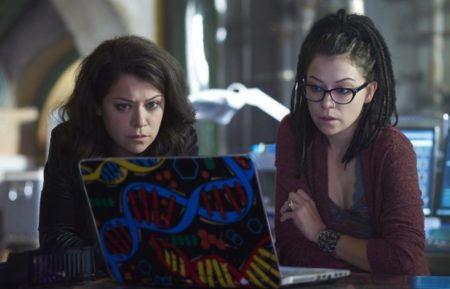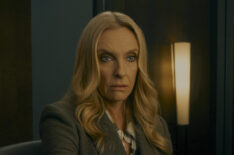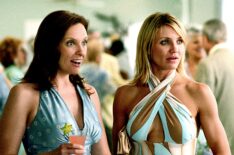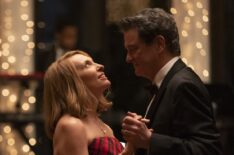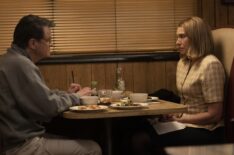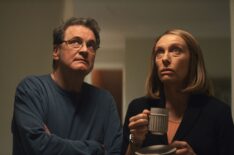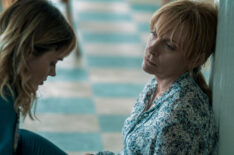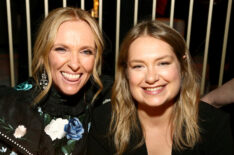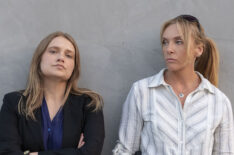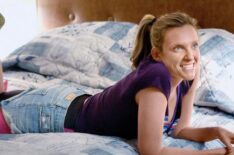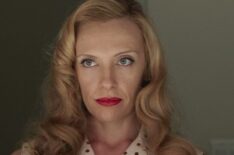Toni Collette
Credits
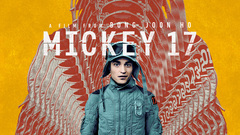
Mickey 17
Actor
Ylfa
Movie
2025

Juror #2Stream
Actor
Faith Killebrew
Movie
2024

The PowerStream
Actor
Mayor Margot Cleary-Lopez
Series
2023

Mafia MammaStream
Actor
Kristin
Movie
2023

Mafia MammaStream
Producer
Movie
2023
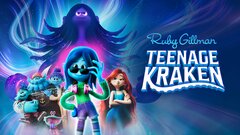
Ruby Gillman, Teenage KrakenStream
Voice
Agatha Gillman
Movie
2023

Mama Mafija
Actor
Movie
2023

Mama Bos
Actor
Movie
2023

Sherri
Guest
Talk
2022
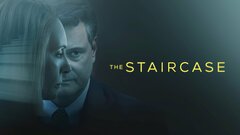
The StaircaseStream
Actor
Kathleen Peterson
Miniseries
2022

Pieces of HerStream
Actor
Laura Oliver
Series
2022

The Estate
Actor
Macey
Movie
2022

StowawayStream
Actor
Marina Barnett
Movie
2021
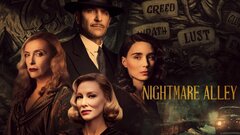
Nightmare AlleyStream
Actor
Zeena Krumbein
Movie
2021

The Drew Barrymore ShowStream
Guest
Talk
2020

GMA3: What You Need to Know
Guest
Show
2020
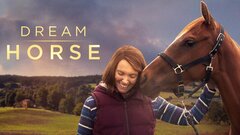
Dream HorseStream
Actor
Jan Vokes
Movie
2020

I'm Thinking of Ending Things
Actor
Mother
Movie
2020

UnbelievableStream
Actor
Grace Rasmussen
Miniseries
2019

Velvet Buzzsaw
Actor
Gretchen
Movie
2019

Knives OutStream
Actor
Joni Thrombey
Movie
2019

WanderlustStream
Actor
Joy Richards
Series
2018
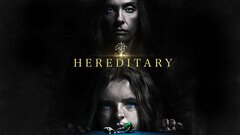
HereditaryStream
Actor
Annie
Movie
2018

HereditaryStream
Executive Producer
Movie
2018

Birthmarked
Actor
Catherine
Movie
2018

Hearts Beat LoudStream
Actor
Leslie
Movie
2018

Naslijeđeno zlo
Actor
Movie
2018

Making Muriel
Self
Show
2017

Tennis: ATP World Tour
Actor
Agnes
Show
2017

Blue Murder: Killer Cop
Actor
Show
2017

Blue Murder: Killer Cop Extras
Actor
Show
2017

Live with Kelly and Ryan
Guest
Talk
2017

xXx: Return of Xander CageStream
Actor
Jane Marke
Movie
2017

Fun Mom Dinner
Actor
Kate
Movie
2017

Unlocked
Actor
Emily Knowles
Movie
2017

Jasper Jones
Actor
Ruth Bucktin
Movie
2017
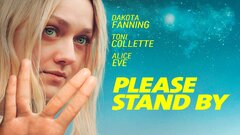
Please Stand ByStream
Actor
Scottie
Movie
2017

Madame
Actor
Anne Fredericks
Movie
2017

The Yellow BirdsStream
Actor
Amy Bartle
Movie
2017

Imperium
Actor
Angela Zampino
Movie
2016

The Late Show With Stephen ColbertStream
Guest
Talk
2015

The Late Late Show With James Corden
Guest
Talk
2015
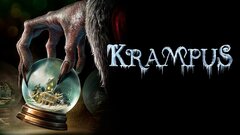
KrampusStream
Actor
Sarah
Movie
2015

Miss You Already
Actor
Milly
Movie
2015

Blinky Bill the Movie
Voice
Beryl/Cheryl
Movie
2015

Lucky Them: Extras
Actor
Show
2014

Late Night With Seth MeyersStream
Guest
Talk
2014
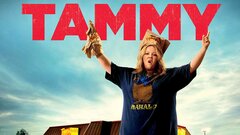
TammyStream
Actor
Missi
Movie
2014

The Boxtrolls
Voice
Lady Portley-Rind
Movie
2014

A Long Way Down
Actor
Maureen
Movie
2014

Hector and the Search for Happiness
Actor
Agnes
Movie
2014

Glassland
Actor
Jean
Movie
2014

The Surgery Ship
Narrator
Show
2013

Hostages
Actor
Dr. Ellen Sanders
Show
2013

Enough SaidStream
Actor
Sarah
Movie
2013

Lucky ThemStream
Actor
Ellie Klug
Movie
2013

The Way, Way BackStream
Actor
Pam
Movie
2013

Live! With Kelly and Michael
Guest
Talk
2012

Larry King NowStream
Guest
Talk
2012

CBS This Morning
Guest
Show
2012

Storm Surfers
Narrator
Movie
2012

HitchcockStream
Actor
Peggy Robertson
Movie
2012

Mental
Actor
Shaz
Movie
2012

Fright Night
Actor
Jane Brewster
Movie
2011

Jesus Henry Christ
Actor
Patricia
Movie
2011

Foster
Actor
Zooey
Movie
2011

The Talk
Guest
Talk
2010

Wetten, dass..?
Actor
Show
2010

Lorraine
Guest
Show
2010

Watch What Happens Live With Andy CohenStream
Guest
Talk
2009

Late Night With Jimmy Fallon
Guest
Talk
2009

United States of TaraStream
Actor
Series
2009

Mary and Max
Voice
Mary Daisy Dinkle
Movie
2009

Who Do You Think You Are?
Guest
Show
2008

The Black Balloon
Actor
Maggie Mollison
Movie
2008

The Black Balloon
Executive Producer
Movie
2008

Hey Hey It's Esther Blueburger
Actor
Mary
Movie
2008

Hey Hey It's Esther Blueburger
Executive Producer
Movie
2008

Today With Kathie Lee & Hoda
Guest
Show
2007

The Graham Norton ShowStream
Guest
Talk
2007

Evening
Actor
Nina
Movie
2007

Towelhead
Actor
Melina
Movie
2007

Tsunami: The Aftermath
Actor
Show
2006

The One Show
Guest
Show
2006

etalk
Guest
Show
2006
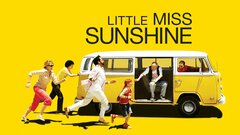
Little Miss SunshineStream
Actor
Sheryl
Movie
2006

The Night Listener
Actor
Donna Logand
Movie
2006

The Dead Girl
Actor
Arden
Movie
2006

Tsunami: Les Conséquences I
Actor
Movie
2006

Like Minds
Actor
Sally Rowe
Movie
2006

Entertainment Tonight Canada
Guest
Show
2005

The Martha Stewart Show
Guest
Reality
2005

Popcorn
Guest
Show
2005

The Late Late Show With Craig Ferguson
Guest
Talk
2005

In Her ShoesStream
Actor
Rose Feller
Movie
2005

The Insider
Guest
Show
2004

Tavis Smiley
Guest
Talk
2004

Connie and Carla
Actor
Carla
Movie
2004

The Last Shot
Actor
Emily French
Movie
2004

Japanese Story
Actor
Sandy Edwards
Movie
2003
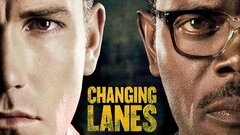
Changing LanesStream
Actor
Michelle
Movie
2002

About a BoyStream
Actor
Fiona
Movie
2002
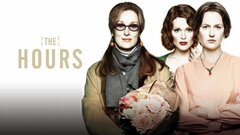
The HoursStream
Actor
Kitty
Movie
2002

Dirty Deeds
Actor
Sharon
Movie
2002

Live With Regis and Kelly
Guest
Show
2001

Dinner With Friends
Actor
Beth
Movie
2001

ShaftStream
Actor
Diane Palmieri
Movie
2000

The Magic Pudding
Voice
Meg Bluegum
Movie
2000

Hotel Splendide
Actor
Kath
Movie
2000
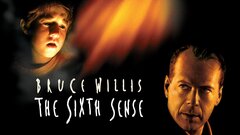
The Sixth SenseStream
Actor
Lynn Sear
Movie
1999

8 1/2 Women
Actor
Griselda
Movie
1999

Ocho Mujeres y Media
Actor
Movie
1999

The Boys
Actor
Michelle
Movie
1998

Velvet GoldmineStream
Actor
Mandy Slade
Movie
1998

The View
Guest
Talk
1997

Urzędowanie
Actor
Movie
1997
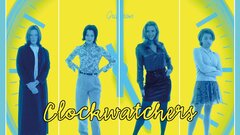
ClockwatchersStream
Actor
Iris Chapman
Movie
1997

Diana & Me
Actor
Diana Spencer
Movie
1997

The James Gang
Actor
Armstrong
Movie
1997

Cosi
Actor
Julie
Movie
1996
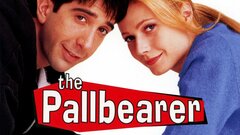
The PallbearerStream
Actor
Cynthia
Movie
1996

EmmaStream
Actor
Harriet Smith
Movie
1996

Lilian's Story
Actor
Young Lilian Singer
Movie
1996
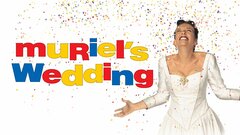
Muriel's WeddingStream
Actor
Muriel Heslop/Mariel Heslop-Van Arckle
Movie
1994

Late Show With David Letterman
Guest
Talk
1993

Arabian Knight
Voice
Nurse/Good Witch
Movie
1993

The Tonight Show With Jay Leno
Guest
Talk
1992

Spotswood
Actor
Wendy Robinson
Movie
1991

Good Morning America
Guest
News
1975

Canada AM
Guest
Show
1972

Today
Guest
News
1952
News aboutToni Collette
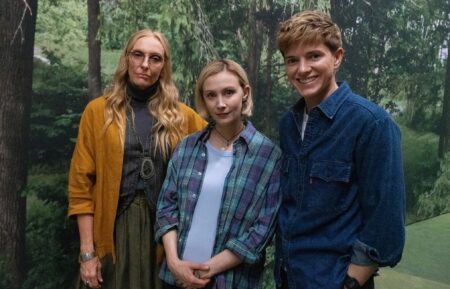
‘Wayward’: Toni Collette Introduces Therapeutic School in Sneak Peek (VIDEO)
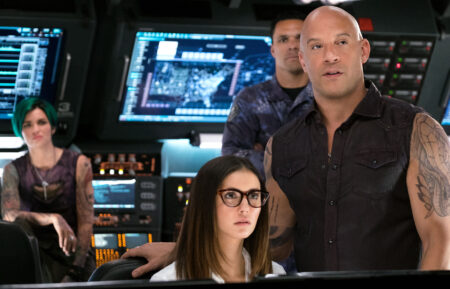
‘xXx: Return of Xander Cage’ Update: Where Is the Cast Now?
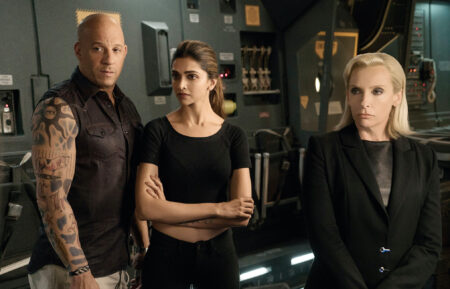
Is a ‘xXx: The Return of Xander Cage’ Sequel in The Works?
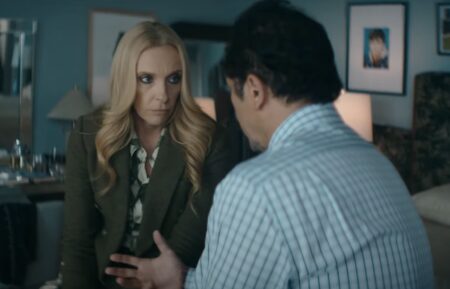
Exclusive
‘The Power’: Toni Collette & John Leguizamo Fail to Reconcile in Episode 6 Sneak Peek (VIDEO)
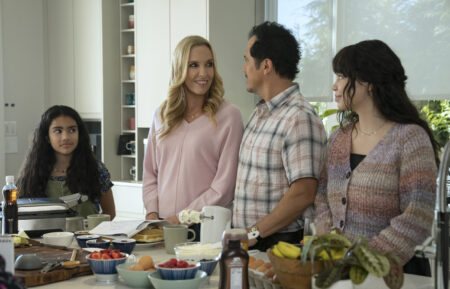
Preview
Here’s What Fans of ‘The Power’ Novel Should Expect From the Prime Video Series
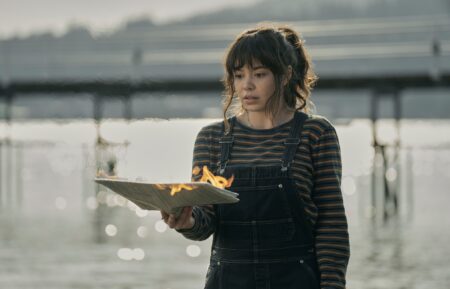
Preview
‘The Power’ Boss on Letting Teenage Girls Be Violent Heroes
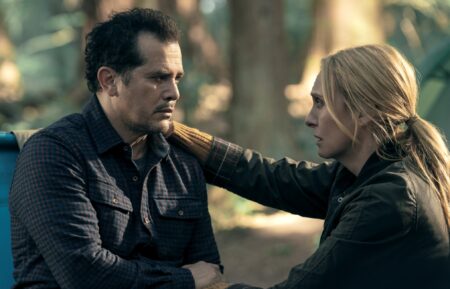
‘The Power’ Trailer: See The Revolution Spark in Prime Video’s New Series (VIDEO)
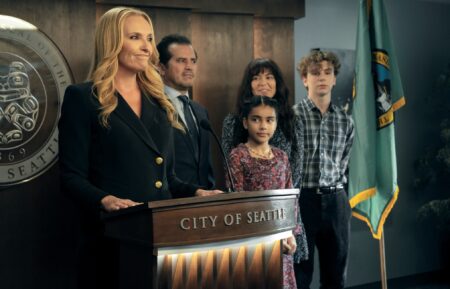
‘The Power’: Here’s a Sneak Peak of Toni Collette & John Leguizamo in Prime Video’s Electrifying New Series (PHOTOS)

Preview
Colin Firth Says Toni Collette’s Performance in ‘The Staircase’ Shook Him (VIDEO)
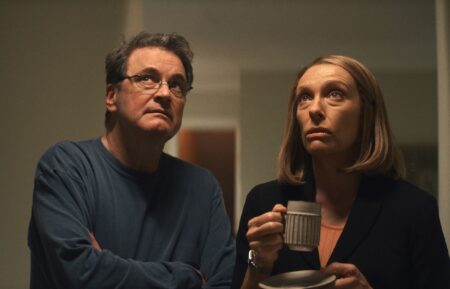
‘The Staircase’ Trailer Teases Family Tragedy for the Petersons on HBO Max (VIDEO)
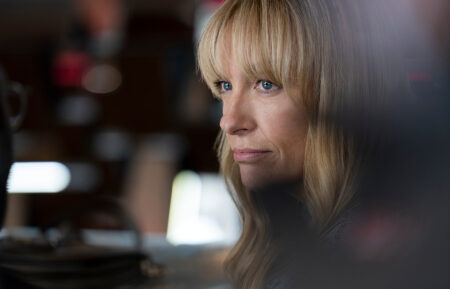
Review
Roush Review: ‘Pieces of Her’ Is Not Exactly a Page-Turner
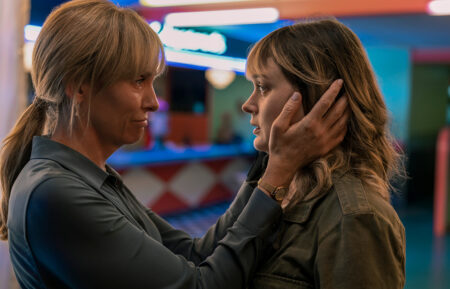
Preview
Toni Collette Recalls ‘Difficult and Intense’ Experience of Filming ‘Pieces of Her’
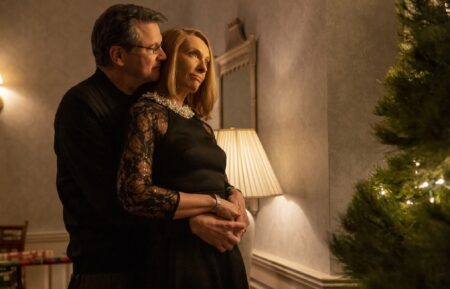
‘The Staircase’: Colin Firth & Toni Collette Are the Petersons in First Look (PHOTOS)
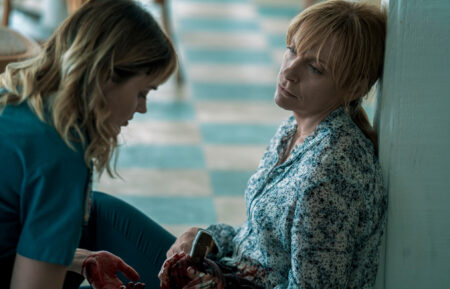
‘Pieces of Her’ Trailer: Toni Collette’s Hiding Something in Netflix Thriller (VIDEO)
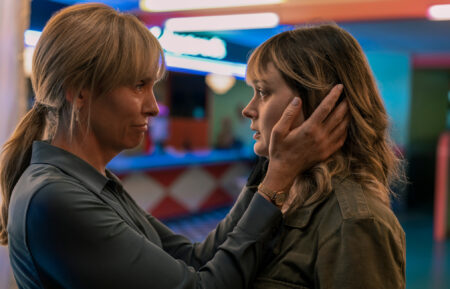
‘Pieces of Her’ Sets Premiere Date: First Look at Toni Collette & Bella Heathcote Thriller (PHOTOS)

‘The Staircase’ Cast on HBO Max: Who’s Playing Who?
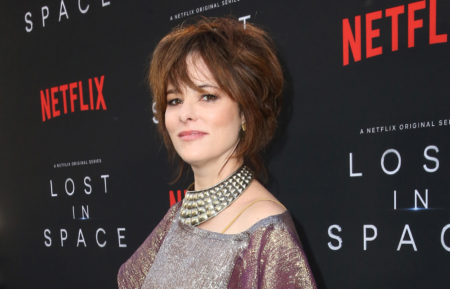
Parker Posey Joins HBO Max’s Michael Peterson Crime Drama ‘The Staircase’
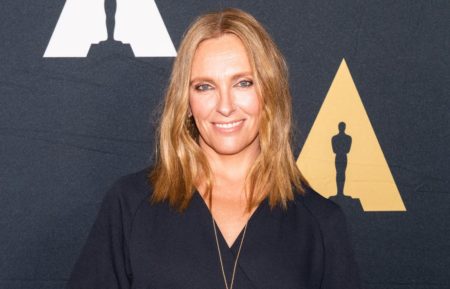
Toni Collette to Star in HBO Max’s ‘The Staircase’ With Colin Firth
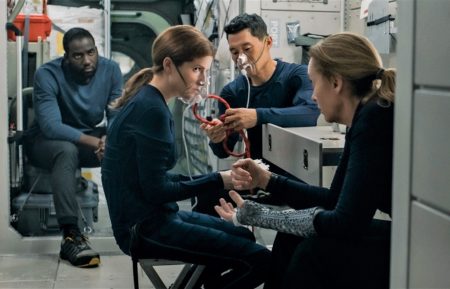
Preview
‘Stowaway’ Brings the ‘Extremely Terrifying’ Reality of Space to Netflix
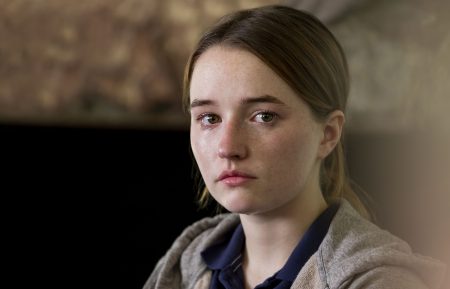
Review
Roush Review: Believe in ‘Unbelievable,’ a Gripping True-Life Crime Drama
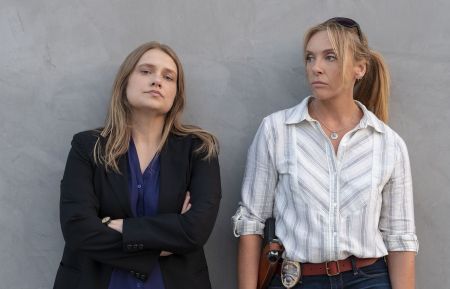
Fall Preview
‘Unbelievable’ EP on How the Netflix Series Sheds Light on Sexual Assault
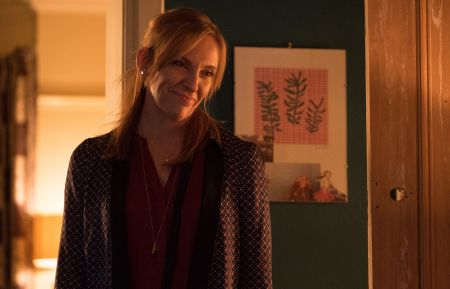
Q&A
‘Wanderlust’s Toni Collette on Her Character’s Journey of Self Discovery
